1. Green Bank, West Virginia

Welcome to the town where your smartphone is as good as a brick, Wayne Drash and Evelio Contreras from CNN say. Green Bank sits in the heart of the National Radio Quiet Zone, a 13,000-square-mile area where most wireless signals are strictly limited. This is to protect the nearby Green Bank Observatory, which listens to faint signals from deep space without interference. As a result, Wi-Fi, cell towers, and even microwave ovens are heavily restricted.
Residents here have adapted to a low-tech lifestyle, relying on landlines and wired internet (when available). The town has become a refuge for people with electromagnetic hypersensitivity who claim to suffer from modern tech. While it’s not “outlawed” in the legal sense, the tight regulations make everyday tech use nearly impossible. You won’t find Starbucks Wi-Fi—or Starbucks—anywhere nearby.
2. Concord, Massachusetts
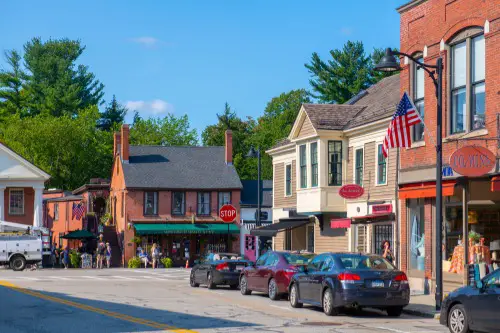
Concord made headlines in 2013 when it became the first U.S. town to ban single-use plastic water bottles, Edgar B. Herwick III from WGBH explains. But the part that flew under the radar? The ban was partially rooted in concerns about overconsumption and environmental impact fueled by tech-enabled convenience culture. Activists claimed that bottled water was symbolic of the thoughtless consumption that smartphones and apps were making worse.
While not a direct tech ban, the ordinance sparked deeper discussions around digital dependence. For example, locals were encouraged to refill reusable bottles at filtered fountains, shifting habits away from “app-driven” purchasing. It was a lifestyle nudge that quietly targeted the tech-fueled grab-and-go mindset. And yes, it caused quite a stir, especially among younger residents.
3. San Juan County, Colorado
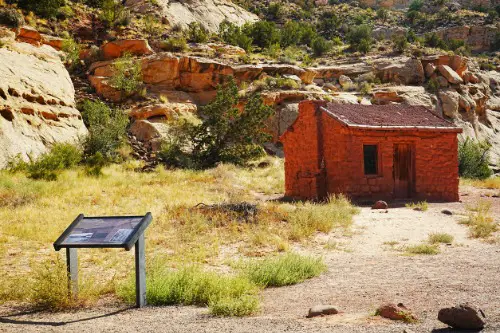
If you want to fly a drone in San Juan County, you better have a really good reason, Hayley Day from The San Juan Journal warns. This mountainous region—including towns like Silverton—has implemented strict restrictions on drone use, especially near wilderness areas. Officials were tired of tourists flying drones over private property and historic mining sites, disrupting both residents and wildlife. Complaints skyrocketed, so they cracked down hard.
Now, hobby drones are essentially grounded unless you have explicit permission. Local law enforcement has even cited some people for trespassing—via drone. The anti-drone stance has become a stand-in for the locals’ broader discomfort with intrusive tech. It’s old-school mountain living, and they’d like to keep it that way.
4. Point Roberts, Washington

Point Roberts is a U.S. town only accessible by land through Canada, and that’s already weird enough. But what makes it even more unusual is the lack of basic tech infrastructure—some of it intentional, according to Kate Springer from CNN. For years, the town didn’t have high-speed internet because major providers didn’t want to cross international boundaries to install it. Residents had to rely on slower, legacy systems—and many didn’t mind.
Some locals even opposed newer towers and cable expansions to preserve the area’s remote charm. The digital delay became a kind of pride, fostering a tight-knit, unplugged community. Businesses use paper receipts, and cash is king. It’s like stepping into a 1990s version of the U.S.—and they like it that way.
5. Amish Communities in Lancaster County, Pennsylvania

No surprise here, but it’s worth spotlighting how strict some Amish towns are when it comes to banning tech. Many Amish sects in Lancaster County prohibit cars, electricity, and the internet altogether. Instead, they use horse-drawn buggies, gas lamps, and hand tools for just about everything. This isn’t just tradition—it’s theology.
The Ordnung, a set of unwritten rules, governs what’s allowed and what’s not. Even something as small as a cordless drill can stir controversy if it’s seen as too “worldly.” Some communities have softened slightly, allowing landlines or shared computers at designated sites. But for the most part, tech is still very much outlawed—in both spirit and practice.
6. Nevada City, California
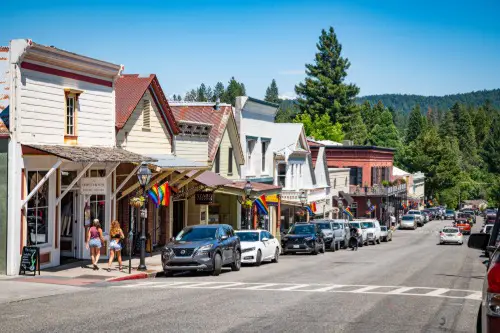
This picturesque Gold Rush town isn’t just quaint—it’s actively skeptical of modern technology. In 2019, Nevada City banned 5G installations until they could assess health risks, citing community concerns over radiation. The town council voted to restrict small cell wireless facilities in residential areas, going directly against telecom industry pressure. The decision made national news and inspired similar bans elsewhere.
Local activists argued that 5G tech hadn’t been proven safe and feared it would ruin the town’s historic aesthetics. While not anti-internet, the stance reflected deep suspicion of unchecked tech rollout. The community continues to push for analog-friendly alternatives. For them, slower isn’t just acceptable—it’s preferred.
7. Barnstable, Massachusetts
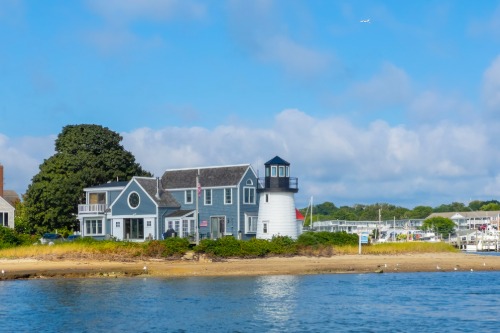
Located on Cape Cod, Barnstable was among the first U.S. towns to restrict facial recognition tech for law enforcement. In 2020, the town passed a bylaw prohibiting the municipal use of biometric surveillance tools. Officials feared the potential for abuse and unwarranted tracking of citizens. They cited privacy, civil liberties, and a desire to keep small-town life “small.”
The move was largely symbolic, but it sent a clear message: Not every town wants to become a smart city. Residents supported the ban even though the technology wasn’t yet in use locally. For many, it was a preemptive strike to avoid becoming a “tech guinea pig.” And so far, it’s working.
8. Ross, Ohio

This sleepy village outside Cincinnati drew attention when it blocked the construction of a new cellphone tower in 2021. Residents argued it would be an eyesore and might pose health risks. The backlash was so strong that the local government delayed or denied permits, essentially banning new tower development. Local Facebook groups lit up with debates—and irony—about the tech protest being organized online.
Some folks even suggested creating a “dead zone” to deter newcomers and short-term renters. It wasn’t just about aesthetics; it was a broader pushback against modernization. The town wanted to remain a quiet, analog haven. And for now, they’re holding the line.
9. Brooksville, Florida
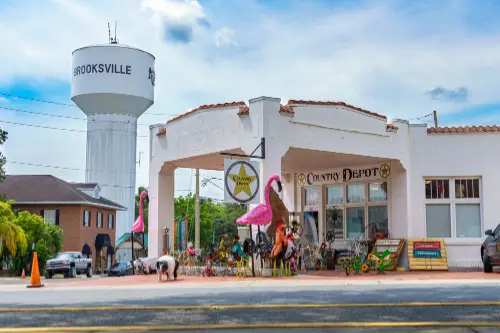
In 2020, Brooksville accidentally sold its own water tower in a real estate deal gone wrong. But the tech angle came when the town refused to digitize key documents that would’ve prevented the mix-up. The city still uses largely paper-based systems, avoiding digital infrastructure upgrades despite repeated mishaps. When asked, officials said they didn’t see the need for more “complexity.”
The result is a town with minimal online services and almost no government digital transparency. Residents pay bills the old-fashioned way and often have to show up in person for records. It’s not a legal tech ban, but it’s a de facto one created by bureaucratic resistance. And strangely, people don’t seem to mind.
10. Eureka Springs, Arkansas

Eureka Springs has long been a haven for artists, mystics, and off-the-grid thinkers. The town placed restrictions on cell tower expansion to preserve its historical vibe and natural beauty. Local ordinances emphasize the “visual pollution” of modern tech as a reason to keep it out. They even require aesthetic reviews before approving any wireless infrastructure.
This has created patchy coverage that some residents treat like a badge of honor. Newcomers are often warned to expect “spotty” service unless they go old-school. Local businesses rely heavily on word-of-mouth instead of online ads. It’s a deliberate choice that keeps Eureka just a little behind—and proudly so.
11. Mendocino, California

Mendocino isn’t anti-tech in a dramatic way, but it has refused to install smart water meters, even during a major drought. The city council argued that smart meters would infringe on privacy and autonomy. They cited concerns about electromagnetic radiation and the idea of being “constantly monitored.” Even in the face of water shortages, they stuck to analog systems.
This has made resource management more difficult but won applause from privacy advocates. Residents praised the decision as keeping “Big Tech” out of their homes. Critics, however, say the policy puts ideology over efficiency. Either way, the town made a conscious choice to stay unplugged.
12. Monticello, Utah
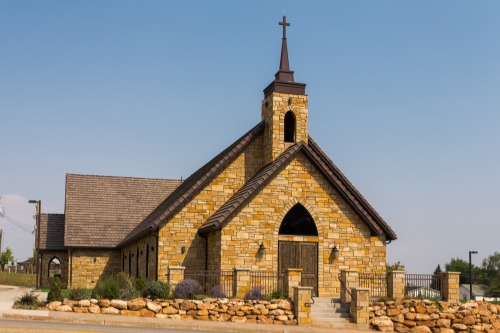
Monticello recently denied a proposal to build a high-tech data center in town, citing cultural and environmental concerns. The center promised jobs and fiber-optic upgrades, but locals feared it would change the rural character of their community. The city council rejected the plan after heated debates about energy use and digital sprawl. It was a rare case of a town saying “no thanks” to big tech money.
Residents worried about light pollution, server noise, and overdependence on corporate infrastructure. They argued that such projects belonged in industrial zones, not in places defined by open land and quiet nights. It was an explicit statement about what kind of future they wanted—and didn’t want. In Monticello, tradition beat out transformation.
13. Snowflake, Arizona

Snowflake is home to a unique community of people with multiple chemical sensitivities and electromagnetic hypersensitivity. Many moved there specifically to escape Wi-Fi, cell signals, and smart meters. Houses are built with shielding materials, and some residents live completely off-grid. Local rules and social norms support these accommodations.
While not an official town-wide tech ban, Snowflake operates like a digital-free zone by consensus. Neighbors respect each other’s sensitivities, and there’s strong pressure to keep tech out. Visitors are often asked to turn off phones and avoid wearing synthetic fabrics. It’s a haven for the hypersensitive—and a strange, quiet frontier in the age of always-on.


